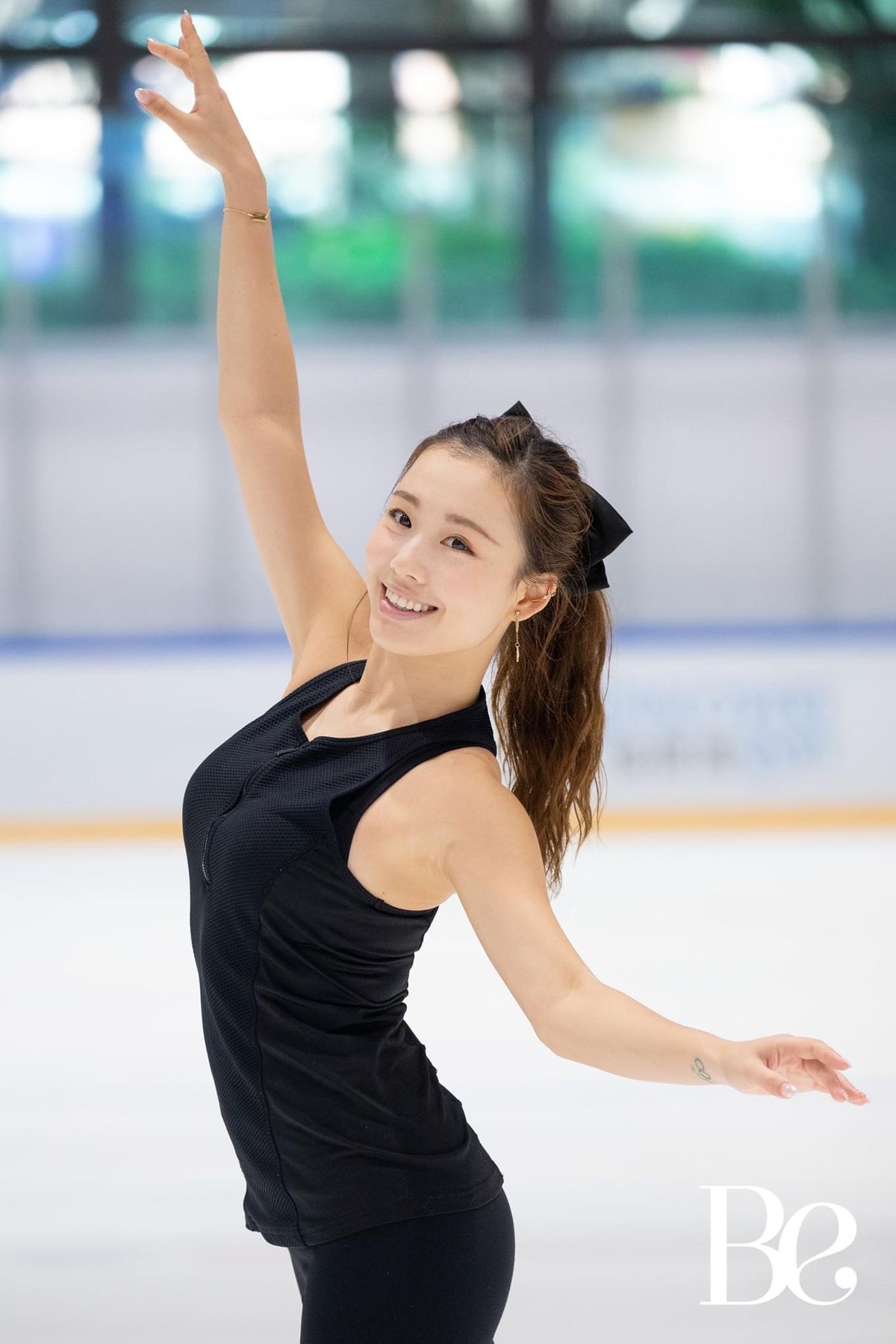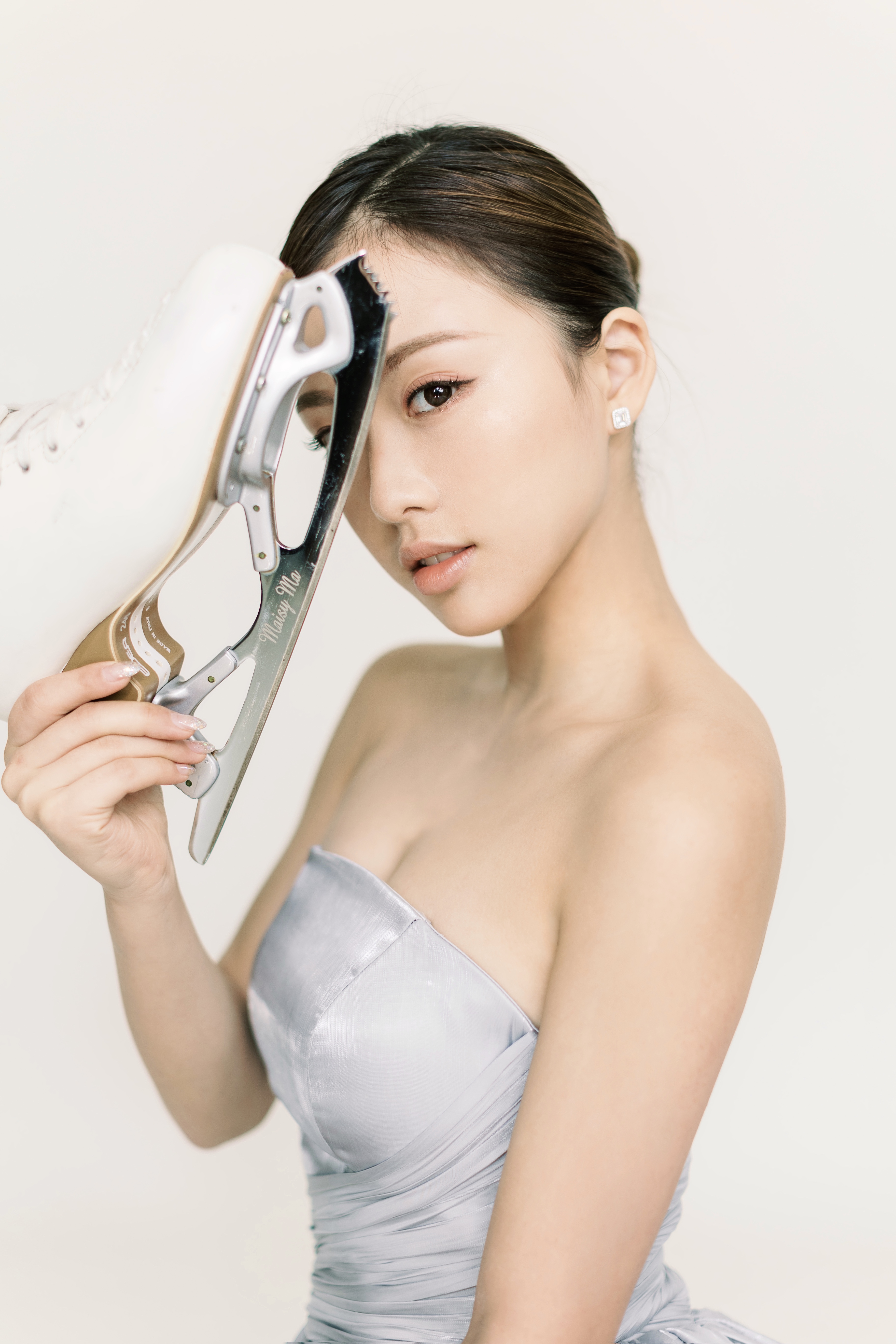Why Hong Kong’s competitive figure skater Maisy Ma refuses to stay down

A few minutes every morning is all you need.
Stay up to date on the world's Headlines and Human Stories. It's fun, it's factual, it's fluff-free.
Obstacles and setbacks won’t keep Maisy Ma down, even when life knocks her off course. Her sports pedigree is more than impressive, and, on top of that, these days she’s branching out.
World-class ice skating performer, International Games silver medalist, seven times Hong Kong Champion, International Junior Grand Prix competitor and figure skating choreographer are just a few titles that 22-year-old Ma has collected in her young life. Her notable talent and bubbly personality have garnered plenty of attention from the media, leading to her appearing in advertisements and on TV – and working on both sides of the camera.
TMS sat down with Ma to find out how things are going and what she’s been up to since the last time she chatted with us. Perked up in her seat and smiling with confidence, Ma radiates positive energy. We learn more about her contributions to the 2022 Beijing Winter Olympics, where her career is taking her now and how she builds her mental strength.
From the rink to the screen – and making the Olympics scene
With gigs ranging from a talk show on Chinese food to hosting the Longines horse races, Ma has been busy with TV coverage leading up to the 2022 Winter Olympics in Beijing. Then, throughout February, she covered the opening ceremony, the daily highlight shows and the closing ceremony for the Games.
“If I told you there wasn’t any pressure, I’d be lying,” Ma says, remembering the opening ceremony, which she hosted. “Because it’s such a big, [the] biggest sporting event … The Olympics is the biggest deal. And so, it was scary. But, I realized I’ve learned. Every single day made me feel more relaxed.
“The first day of the opening ceremony, I was like ‘Oh my gosh, this looks so scary.’ But then you realize that you just kind of sink into the rhythm. You know, you’re more aware of everything, like the intercom in your ear, and you start listening to it while you’re reciting the lines. These are the things I learned every single day.”
She explains the technical challenges of hosting – learning about all the different winter sports, hopping from one camera to the other, reciting lines under pressure within specific time constraints and listening to the intercom while narrating what’s going on live. All things that a regular viewer would never really think about. “Looking back, it was definitely a great personal experience,” she says, beaming.
However, Ma has faced her fair share of challenges. Five years ago, she suffered an injury that left her unable even to enter the trials of the Olympics, which was devastating for her. “Honestly, it was scary for me. I didn’t really want to think about it. When I watched [the] Olympics last time, I couldn’t really watch a little bit, to be honest. It was really sad knowing the people that you used to train with or compete with, they were at the Olympics, right?”
Ma explains how she experienced a long, difficult period where friends, family and reporters who have known her for years were asking her whether or not she would compete at the Olympics. Heartbroken, she would have to share the news with them. Her perfectionistic personality made it all the more difficult for her to come to terms with her injury. It was a long internal battle, but she still managed to pick herself back up.

Ma says attending college was a “healing process” for her, recalling the first time she sat in her campus lecture hall surrounded by about 400 other students. It was the moment she realized that she was just one story out of hundreds, and it was here that she could reinvent herself – no longer as simply the skater but also as a high-achieving student and an accomplished person.
“I was always the skater, the one who left school to go skate, the one who was like a skating champion, whatever. But when you’re sitting in that lecture [with] 400 people, you realize that you’re really just nothing. Not like nothing, but you’re nothing different than everyone else in the room. So I was like, ‘OK well, this is really a chance for me to gather myself and be a new person.’”
“Life is all about perspective,” she says. “If you think about it, missing the Olympics and stuff could be like a tragedy for some, in some ways. For me, it was the biggest competition for a skater, and I couldn’t go. Well, I guess on the upside of that, it made me realize that there’s so much more to that.
“Skating brought me so much more than just ‘Oh, I was really injured at the end’ … Staying positive is so important, especially having good people around you to remind you that everything’s going to be fine.”
It meant a lot to Ma that she could present the athletes that she had previously trained with, empathizing with the battles they faced – the injuries and the challenges. “We all grew up together. And I am very proud of them … It was really meaningful for me to be able to talk about them from behind the scenes … to share with [the] audience here about who they are and their upbringing and how they’re great as a skater, you know? Their talent, their skills.”
Ma emphasizes the importance of focus and setting goals. “To be able to stay focused, I’ll make myself a new goal. It used to be Olympics or it used to be to medal at a world competition. I did that … I don’t want skating to be my only high in life. I need to set myself another goal. So I was like, ‘OK I’m going to graduate in two years.’ It kind of came up as a joke before … but then, when I put my mind to something, I will find a way.”
She’s memorialized part of her journey with a tattoo on her wrist of the Olympic rings. When she lifts up her wrist to show it, you can see that one of the rings is broken. “It’s not a full circle because I didn’t make it … People used to ask me ‘Why would you put such a sad memory on your wrist?’ Honestly, there was a point in my life where I thought I was sad, but now, I’m very grateful for how everything turned out.”
Ma points out that skating brought so much to her life that it doesn’t seem right to boil it down to simply not being able to compete in the Olympics. Refocusing her ambition motivated her to graduate from university in just two years.
“Because of me graduating in two years, I came back to Hong Kong [and] I had more of that feistiness in me to do bigger and better.”
Her motivation brought her into the media world in Hong Kong, allowing her to work behind the scenes in TV and even in a Hollywood production. “Maybe that wouldn’t have happened if that didn’t happen. You know, it’s like the butterfly effect in some ways.”
Looking ahead to a brighter future

So, where is life taking Ma now? “I’ve always loved the audience,” she says, describing how skating allowed her to communicate to the audience as an athlete, expressing a story with her movement and skill, performing tricks that she spent years mastering. Now, she stays in line with her love for communication.
“As I got older, a new way of communicating with the audience is through TV and ads,” Ma explains. “And I love being able to talk about my story with people or even understanding their story.”
Ma translated her passion for communication through various media projects, from advertising to TV hosting. “Even recently, I’ve been doing more brand stuff. I’m an Aerie Girl this year [for American Eagle]. I did Adidas recently. These brands are, although it’s not like TV hosting, I can still transfer a type of energy to people – ‘go do sports, be healthy, stay positive.’ I just love being able to transmit [this] kind of positivity to everyone. So, that’s why I do media.”

She also spent some time coaching other skaters and is now exploring the world of F&B, recently taking a role in a restaurant group working in marketing, admin and HR. Although COVID has temporarily halted her coaching, she beams when speaking about that avenue of her career.
She describes how her young students remind her of herself when she first started skating and the gratifying feeling of seeing her older students land a jump after months of training. Coaching allows her to see things from the other side, like supporting her students through stress and injuries before competitions – something not too distant from her personal experiences.
“There [are] also situations where I reflect on myself when I teach a kid. For example, a couple of months ago, right before a competition, I had a 13-year-old going through something that I guess every skater [does], and so did I. So, she was really mentally destroyed because she was under so much pressure. And she was going through puberty, so it was basically like WWIII in her head. It was so heartbreaking to see that because when I hear her talk about certain things, it just reminded me of those times in my life where [I] just felt so lost.
“I remember coaches and people around me just being like, ‘Oh you think it’s forever, that this is the hardest moment of your life, but trust me, it’s going to pass.’ When I was 13 or when I was going through those things, I just didn’t understand … As a coach, when I see that, it’s like I finally understand what they meant. After all these years, I look at my life, and I love my life. But, at the time, you just feel so trapped.”
One thing that distinguishes Ma from other coaches is the smaller age gap between her and her students and how she is able to empathize with them.
“My age and my student’s age is so close. The fact that I’ve just been through that like four years ago or five years ago, and I totally understand them. That sort of communication is really really important. For you to be able to trust a coach when you’re so stressed and at a low point in life is very important,” she says.
Ma has a favorite quote that she says sums up her outlook on life and her career thus far. It’s the familiar adage, “When God shuts a door, he opens a window.”
“But it’s up to you to find it,” she recites, emphasizing this last point. “When you think that everything’s a shit show, I guess, you look back, and you’re like ‘No, it’s really not.’ It’s just the start of something.
“Opportunites are always going to be there, but are you willing to go for it? … Are you brave enough to go step it up?”







Comments ()